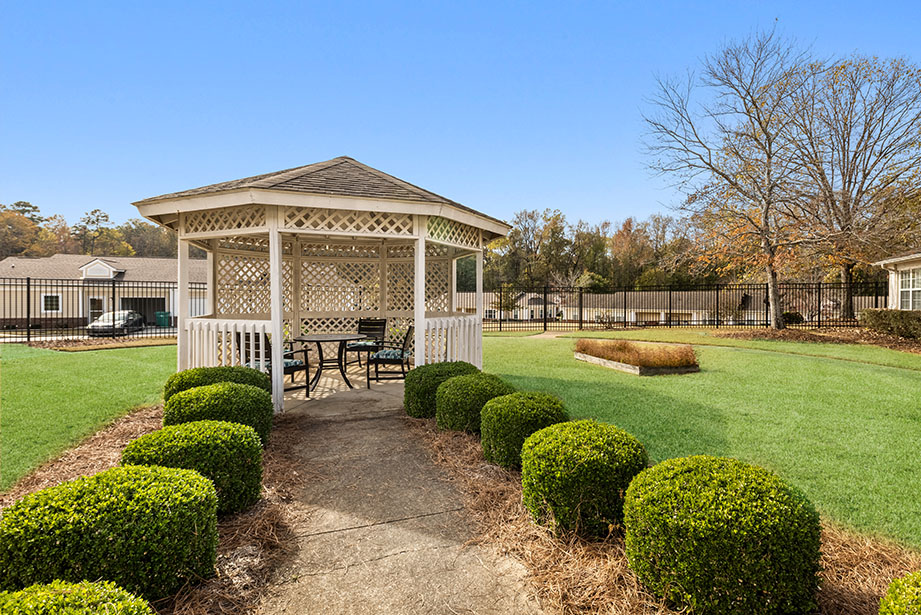Navigating the complexities of senior living can be overwhelming for many families. Knowing when assisted living is the right choice and who qualifies can provide clarity during this uncertain time. By consulting with your loved one’s healthcare provider and seeking expert guidance from a senior living community, you can make an informed decision.
Generally, adults over 55 who require assistance with their activities of daily living (ADLs) may benefit from assisted living. However, individual circumstances vary, so assessing your loved one’s needs is essential.
What Is Assisted Living?
Assisted living is a type of housing designed for those needing various levels of medical and personal care. It combines residential living, health care, and support services.
Residents typically have access to a variety of lifestyle services, including:
- Daily meals
- Personal care assistance
- Medication management
- Social activities
- Laundry and housekeeping
- Transportation
Assisted Living vs. Independent Living
Assisted living differs from independent living in that it offers more supportive services. Independent living is generally for self-sufficient seniors who primarily need convenience, whereas assisted living provides essential health and personal care services.
How Does Someone Qualify for Assisted Living?
Qualifying for assisted living involves assessing a variety of factors, including:
- Activities of daily living (ADLs): If your loved one struggles with tasks like bathing, dressing, or managing medications, assisted living can provide the necessary support.
- Mobility issues: Limited mobility can make it difficult to navigate the home or perform daily tasks independently.
- Chronic health conditions: Assisted living can offer assistance with managing chronic health conditions and ensuring medication adherence.
Other important considerations include:
- Age: While there isn’t a strict age limit, many assisted living communities have a general age requirement, often around 55 or 60.
- Financial eligibility: You’ll need to assess your loved one’s financial situation to determine if assisted living is affordable. Consider factors like their income, assets, and long-term care insurance.
- Level of care: If your loved one requires extensive medical care or has severe cognitive impairment, assisted living may not be the most suitable option. In such cases, memory care might be more appropriate.
For a more accurate assessment, consult a healthcare professional who can evaluate your loved one’s specific needs and recommend suitable living arrangements.
Signs It’s Time for Assisted Living
It can be difficult to determine when it’s time to consider assisted living. Here are some common signs that may signal the need for additional support:
- Increased safety concerns: Difficulty staying safe at home, such as tripping or falling.
- Challenges with daily tasks: Struggling with bathing, dressing, or preparing meals.
- Social isolation: Feeling lonely or withdrawn and having limited social interactions.
- Overwhelming caregiving responsibilities: Caregivers experiencing burnout or struggling to provide adequate care.
If you notice any of these signs in your loved one, it may be time to explore assisted living options.
Benefits of Assisted Living
Assisted living offers numerous benefits that can help make life easy and fulfilling.
Access to Professional Care
Assisted living features the benefit of experienced and specially trained caregivers available on-site 24/7 to provide prompt medical attention and personalized care.
Convenience & Safety
Senior living communities are designed for safety and accessibility to reduce the risk of accidents. Housekeeping and meal preparation also provide freedom for a maintenance-free life.

Social Engagement
Assisted living communities typically offer a variety of activities and social events, which build connections and foster friendships among residents and staff.
The Decision-Making Process
Making the decision to move to assisted living can be a big step. Here’s a guide to help you navigate the process:
- Involve family members: Discuss the decision with family members to ensure everyone is on the same page and address any concerns collaboratively.
- Visit potential communities: Tour different assisted living communities to get a firsthand look at the environment, services, and amenities offered. Pay attention to cleanliness, staff interactions, and resident satisfaction.
- Consider professional advice: Consult with healthcare providers or senior care managers for valuable insights and recommendations tailored to your loved one’s needs.
- Evaluate financial considerations: Assess your budget, insurance coverage, and potential government assistance to determine the best financial option.
The Cost of Assisted Living
Understanding the costs associated with assisted living is essential for planning your future. Here’s what you need to know.
Monthly Fees
Most communities charge a monthly fee for essential services like rent, housekeeping, and personal care, but some services may be extra.
These fees can range widely based on location, amenities, and level of care required. Knowing what is and isn’t covered is essential for avoiding unexpected expenses.
Financial Assistance Programs
Various programs, including Medicaid, Veterans Affairs benefits, and long-term care insurance, can help alleviate the financial burden. Researching and applying for these programs can provide some financial relief.
Find a Community That Fits Your Life
Navigating the transition to assisted living can be complex, but understanding when it makes sense and who qualifies for it simplifies the process. By recognizing the signs, involving family, and considering all financial options, you can make an informed decision that ensures the best care for your loved one.
Contact our team at Summer Village Senior Living for personalized advice and assistance. We’d love to schedule a time for you and your loved one to visit our community and experience the benefits of assisted living firsthand.








